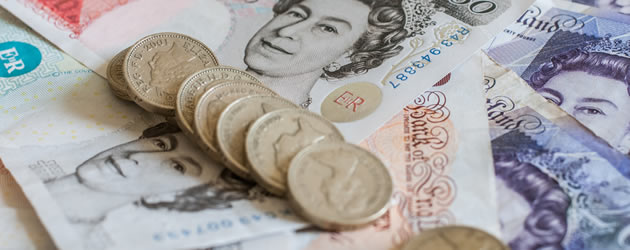The Pound Sterling to Euro (GBP/EUR) exchange rate started the London session trending marginally down , but defended its position well in the face of strong data from the currency bloc thanks to last week’s dramatic US Non-Farm Payrolls releases.
GBP/EUR Exchange Rate Sees Small Losses Following Bank of England (BoE) Dovishness Last Week
Sterling is still recovering from last week, where a three-month high of 1.4193 preceded a dramatic fall following a pessimistic Inflation Report from the Bank of England (BoE) and the committee’s decision not to raise interest rates from 0.5%. GBP had been climbing steadily against the Euro since the middle of October, but last week’s data seems to have reversed its fortunes.
The GBP/EUR exchange rate is currently down around 0.20% at 1.3974.
Key US Jobs Data Weakens Euro (EUR) and Protects Pound Sterling (GBP) from Further Losses
The British asset was been spared further losses thanks to better-than-expected data from the US Non-Farm Payrolls. Released last week, the payrolls showed a jobs gain of 271,000 – substantially more than the forecast jobs increase of 137,000.The data saw the strengthening of the ‘Buck’ against the common currency, with EUR/USD exchange rate falling from 1.0883 to 1.0716. Since then the Euro has made little recovery, and this weakness in the single currency has prevented it from making further gains against the Pound.
The Non-Farm Payroll data has also bolstered faith in a December rate hike from the Federal Reserve. A rise in US interest rates is seen as good for Sterling, as it could give the BoE the confidence to commit to raising UK interest rates. ‘Most economists believe the Bank of England will wait for the Fed to move before nudging up borrowing costs in the UK, since tightening policy before the US would likely appreciate the Pound further—a strength that has already hampered British exports,’ explains The Wall Street Journal.
EUR/GBP Exchange Rate Bearish this Week Regardless of Positive German Data
The common currency received a minor boost against almost all of the main currencies following the release of new economic data which shows more growth in the German economy. The German Trade Balance has risen from 15.4 billion Euros to 22.9 billion, beating the forecasted rise of 20 billion. This was just one of the positive economic factors which contributed to the almost doubling of the Current Account from 13.3 to 25.1 billion.
After August’s -5.2% fall, seasonally adjusted German exports in September rose past the anticipated 2.0% mark to 2.6%, while imports for the same period increased from -3.2% to 3.6%.
The data releases were enough to see the Euro appreciate slightly against most currencies, most noticeably the South African Rand (EUR/ZAR) and the Japanese Yen (EUR/JPY), but the bullish performance of the US Dollar last week continues to keep the Euro trending narrowly.
The common currency has also been hampered by yet another potential row over the Greek bailout. Traders have reacted skittishly to the news that Eurozone ministers could withhold the next €2 billion pay out over disagreements about Greece’s implementation of required economic reforms.
GBP/EUR Exchange Rate Forecast: Pound Sterling Predicted to Strengthen With Release of UK Jobs Data
Tuesday 10th sees the release of US data, including the Import Price Index and Wholesale Inventories, which could see the Euro weakened in the face of consistent, or strong, US economic performance. This in turn could see GBP/EUR conversion rates rise, reinforced by UK data on Wednesday, with a wealth of employment figures due to be released.
GBP/EUR is currently trending narrowly between 1.3966 and 1.4034.



